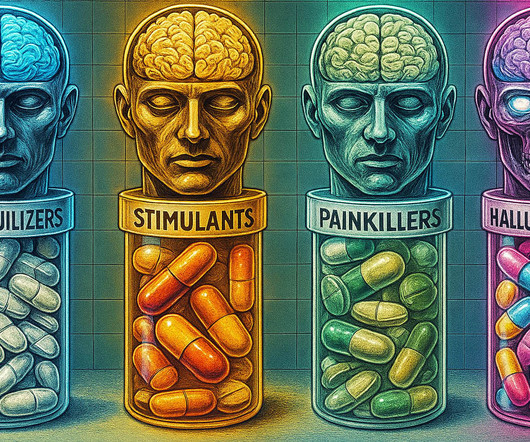The Anatomy of Anxiety: An Interview With Ellen Vora
Mad in America
NOVEMBER 20, 2024
If we’re experiencing a lot of false anxiety, our moods are this pinball game. But society then became fully entrenched in the idea that mental health is a genetic or a chemical imbalance, which worked too well for pharmaceutical marketing. False anxiety is often the “low-hanging fruit.” It’s quick wins that are in the way.











Let's personalize your content